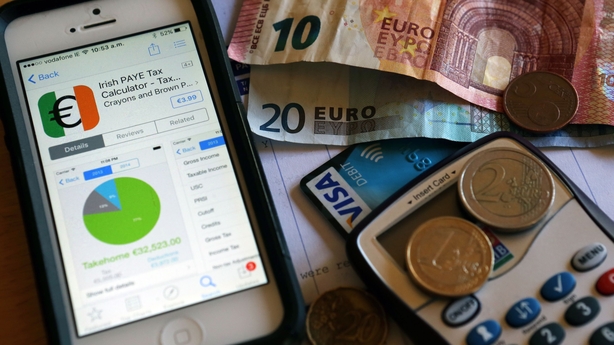The Fianna Fáil Leader has said delays in increasing the old age pension and welfare payments until the second quarter of the year are not acceptable to the party.
Micheál Martin's comments come as talks continue ahead of the Budget on Tuesday.
He said that some of the 11th-hour suggestions by the Government in recent days have "irritated" and concerned his party.
Speaking at his party's annual president's dinner in Dublin, Mr Martin said that Fianna Fáil wants to be faithful to its election promises and so it expects welfare increases in January.
"I haven't spoken about specifics but we're talking about €5 for the old age pension and we make no apology for that," he said.
The Fianna Fáil leader said his party has been careful not to talk about "red lines" ahead of the Budget but there remains a lot of work to do to reach agreement.
Mr Martin said that Leo Varadkar seems to believe that if he constantly has a go at Fianna Fáil that might gain him traction in a subsequent election he might find himself in.
Earlier, the Minister for Social Protection Leo Varadkar said the recovery needs to be for everyone in the Budget next Tuesday.
Mr Varadkar said the self-employed, people who can't work, rural and urban, young and old need to feel the impact of the Budget in their pockets - even if it is modest.
The parties must agree on what point next year there would be an increase in weekly welfare payments for both pensioners and groups like carers, the disabled, the blind, widows and people on illness benefit.
We need your consent to load this rte-player contentWe use rte-player to manage extra content that can set cookies on your device and collect data about your activity. Please review their details and accept them to load the content.Manage Preferences
It is understood that officials from Department of Social Protection are also in talks with the Department of Finance and the Department of Public Expenditure on the issue.
A spokesperson for Mr Varadkar said: "The Government is united in the view that along with an increase in the weekly pension, there also has to be an increase for other groups who get a weekly welfare payment.
"While we would like to give everyone €5 a week from the first of January, it would cost approximately €350m a year which is impossible given current budgetary constraints.
"So we are working on a solution that will give everyone an increase as early in the year as we can afford," added the statement.
Meanwhile, the Government Estimates of Income and Expenditure, the White Paper, published last night said the general Government deficit will virtually disappear if it makes no changes in the Budget on Tuesday.
However, the Government is likely to run a bigger deficit than forecast in the White Paper, which will give it additional money to spend over-and-above the forecast fiscal space of around €1bn.
It has also emerged that the Government is considering delaying pension and other welfare increases until next year to provide more spending flexibility but Fianna Fáil has ruled that out.
The Government is likely to run a bigger deficit than the 0.1% forecast, which will give it additional room to spend in Tuesday's Budget, over and above the forecast fiscal space of around €1bn.
The White Paper - published as a constitutional requirement, and showing the opening situation before any Budget changes are made - projects the deficit to fall from €2.44bn this year to just €242m next year.
It said tax revenues are due to increase by about €2.5bn next year, without any changes to the tax laws.

Around half of this increase is set to come from income tax revenue, due to more people being in work, and some pay increases.
Value added tax is expected to bring in an extra €650m, with the other tax headings bringing in the balance, reflecting forecasts of economic growth next year.
Voted spending is forecast to increase by just over €500m, while non-voted spending will fall by just over €400m.
A €400m saving on debt service costs is projected t be largely offset by a €250m increase in contributions to the EU budget, and a €200m fall in miscellaneous spending. Giving a total pre-budget spending increase next year of €148m.
Voted capital spending is set to increase by about €174m. Capital receipts are due to fall by about €1.5bn, due to the non-recurrence of the sale of contingent capital notes in the banks.
The capital contribution to Irish Water is due to increase by €84m, from €184m to €270m.
The voted expenditure figures are shown in aggregate terms - there is no breakdown by vote.
As the White Paper is produced on a pre-Budget basis (i.e. no policy change), it becomes redundant as soon as the budgetary measures (both expenditure increases and taxation reductions) are announced on Budget day.

